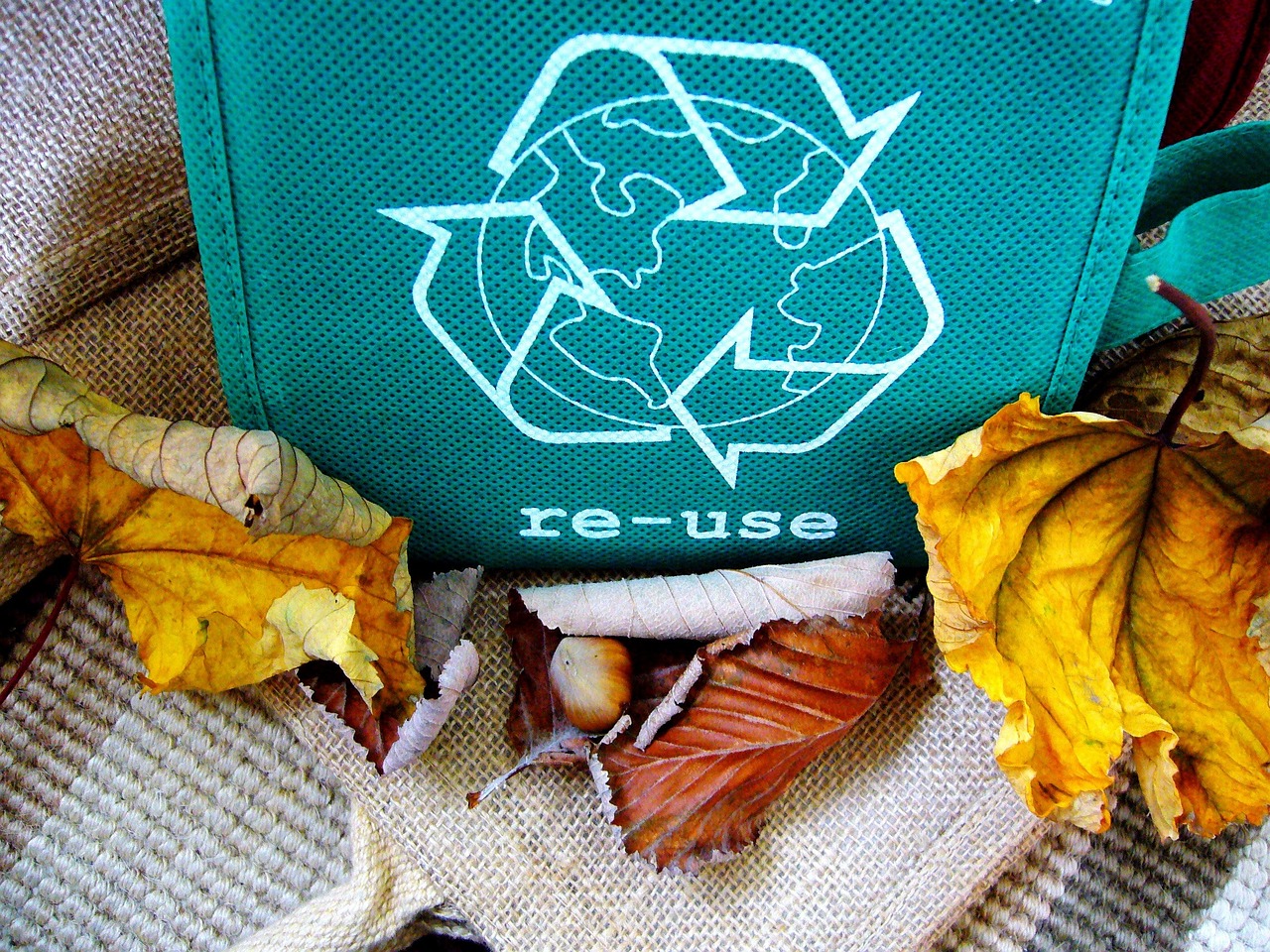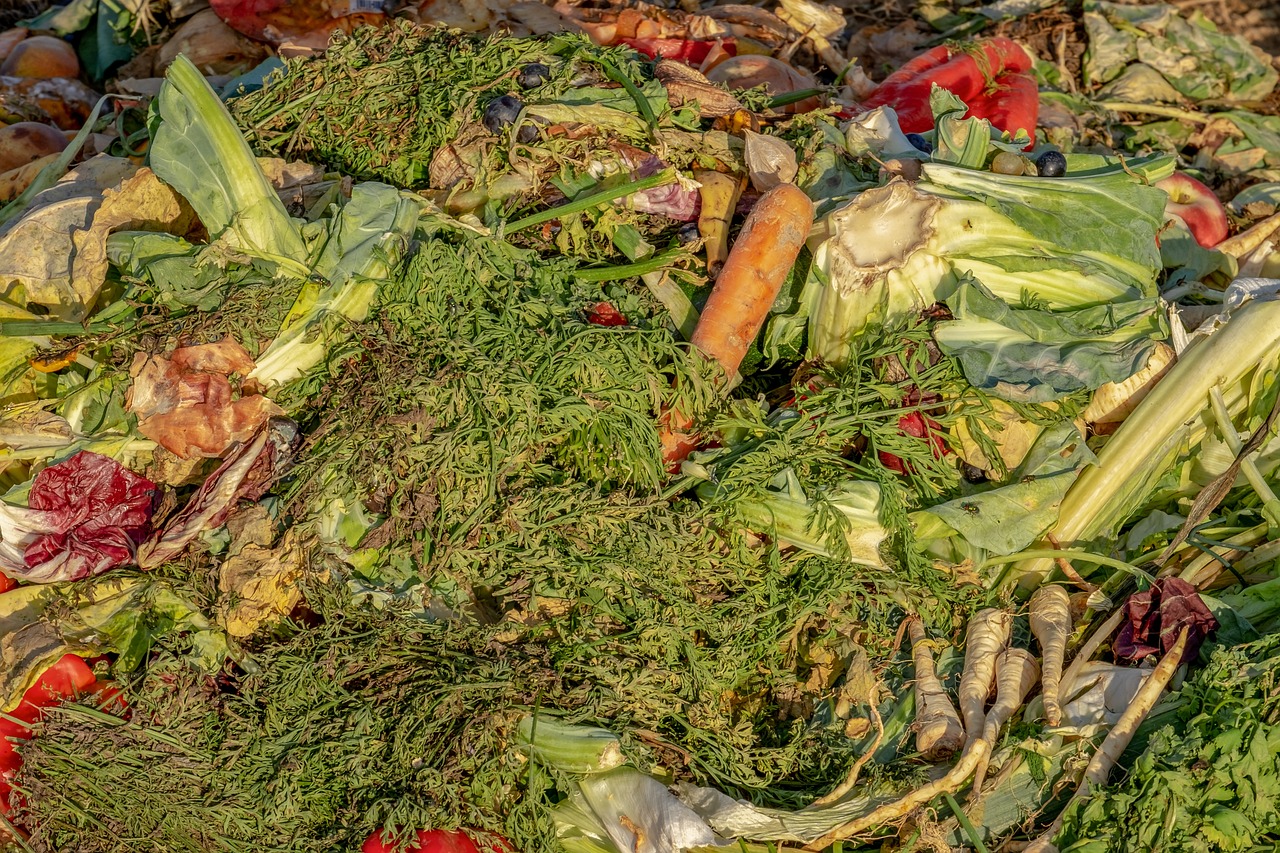Importance of Recycling for Urban Sustainability
In today’s fast-paced urban environments, the **importance of recycling** cannot be overstated. As cities continue to grow, so does the amount of waste generated. This presents a significant challenge, but also an incredible opportunity. Recycling is more than just a trendy buzzword; it’s a vital component of urban sustainability. By effectively managing waste through recycling, we can not only reduce the burden on landfills but also conserve precious resources and promote a healthier planet.
Imagine walking through a bustling city where the air is clean, parks are lush, and the streets are free of litter. This vision can become a reality through robust recycling programs. When we recycle, we are not merely tossing items into bins; we are actively participating in a cycle that benefits our environment, economy, and community. This article will delve into how recycling contributes to urban sustainability, highlighting key practices, benefits, and the challenges we face in making recycling a cornerstone of urban life.
At its core, recycling is about **transforming waste into resources**. By diverting materials like paper, plastic, and metals from landfills, we can significantly reduce the environmental impact associated with waste disposal. In fact, recycling can lead to a substantial decrease in the volume of waste that cities have to manage. According to the Environmental Protection Agency (EPA), recycling and composting prevented the release of approximately **186 million metric tons** of carbon dioxide equivalent into the air in 2013 alone. That’s like taking **39 million cars off the road**! This statistic emphasizes the profound effect that recycling can have on our urban ecosystems.
Moreover, recycling promotes **environmental stewardship**. It instills a sense of responsibility in communities, encouraging individuals to think about their consumption habits and the lifecycle of the products they use. When people are aware of the benefits of recycling, they are more likely to participate actively in these programs. This collective effort can lead to a cultural shift where sustainability becomes a shared value, fundamentally changing how urban societies operate.
In conclusion, recycling is not just a method of waste management; it is a cornerstone of urban sustainability. It conserves resources, reduces pollution, and fosters community engagement. As we navigate the complexities of urban living, embracing recycling is essential for creating healthier, more sustainable cities. Let’s take the plunge into understanding the **role of recycling** in waste management and its broader implications for our urban ecosystems.
- What materials can be recycled in urban areas? Most urban recycling programs accept paper, cardboard, glass, metals, and certain plastics. However, it's essential to check local guidelines for specific requirements.
- How does recycling help the economy? Recycling creates jobs in collection, processing, and manufacturing industries. It also reduces costs associated with waste disposal and raw material procurement.
- What are the common challenges faced in urban recycling? Common challenges include contamination of recyclable materials, lack of public awareness, and insufficient infrastructure to support recycling efforts.

The Role of Recycling in Waste Management
Recycling plays a crucial role in modern waste management systems, acting as a lifeline for cities grappling with ever-increasing amounts of waste. Imagine a bustling urban environment where every item that is thrown away has the potential to be transformed and reused, rather than languishing in a landfill. This transformation is not just a dream; it’s a reality that effective recycling strategies can help achieve. By diverting materials from landfills, recycling reduces the overall volume of waste, making it easier for cities to manage their refuse while also conserving valuable space.
One of the primary benefits of recycling is its ability to reduce landfill overflow. Landfills are not just unsightly; they contribute to various environmental issues, including soil and water contamination. When recyclable materials end up in these sites, they can take years, if not centuries, to decompose. By implementing robust recycling programs, urban areas can significantly cut down the amount of waste that requires disposal, leading to cleaner, healthier environments.
Moreover, effective recycling practices can improve urban waste management by creating a circular economy. In a circular economy, materials are continuously reused and recycled, minimizing waste and making the most of our resources. This approach not only enhances sustainability but also fosters innovation, as cities develop new methods and technologies to recycle materials more efficiently. For instance, many cities are now investing in advanced sorting technologies that can separate recyclables from waste more effectively, thus increasing overall recycling rates.
However, it's essential to recognize that recycling is not a standalone solution. It must be integrated with other waste management strategies, such as composting and waste reduction initiatives. For example, while recycling handles materials like plastics and metals, composting can address organic waste, creating a more holistic approach to waste management. By combining these strategies, urban areas can achieve a substantial decrease in their waste footprint.
To illustrate the impact of recycling on urban waste management, consider the following table that highlights key statistics:
| Year | Recycling Rate (%) | Waste Diverted (tons) |
|---|---|---|
| 2018 | 35 | 500,000 |
| 2019 | 40 | 600,000 |
| 2020 | 45 | 750,000 |
This table exemplifies how a concerted effort towards recycling can lead to substantial improvements in waste management. The upward trend in recycling rates and the corresponding increase in waste diverted from landfills illustrate the effectiveness of these initiatives.
In conclusion, the role of recycling in waste management cannot be overstated. It is not merely about reducing waste; it is about fostering a culture of sustainability and responsibility within urban communities. As cities continue to grow, embracing recycling as a fundamental practice will be essential in ensuring that we manage our resources wisely and protect our environment for future generations.

Environmental Benefits of Recycling
Recycling is more than just a trend; it's a vital practice that significantly impacts our environment. By diverting waste from landfills and reintroducing materials into the production cycle, recycling contributes to a healthier planet. Imagine a world where our natural resources are preserved, greenhouse gas emissions are reduced, and urban ecosystems thrive. That's the power of recycling! It’s like giving Mother Earth a much-needed break and allowing her to rejuvenate.
One of the most prominent environmental benefits of recycling is its ability to lower greenhouse gas emissions. Each time we recycle materials like paper, glass, and metals, we are effectively reducing the amount of energy required to extract and process raw materials. For example, recycling aluminum saves a whopping 95% of the energy needed to create new aluminum from bauxite ore. Think about it: every can you recycle is a step towards a cleaner atmosphere and a more sustainable future.
Furthermore, recycling plays a crucial role in conserving our precious natural resources. By reusing materials, we can significantly decrease the demand for new raw materials. This is especially important in urban areas where resources are limited. Here’s a quick breakdown of how recycling helps conserve resources:
| Material | Resource Conserved |
|---|---|
| Paper | Trees, Water, Energy |
| Glass | Sand, Soda Ash, Limestone |
| Aluminum | Bauxite Ore, Energy |
Additionally, recycling contributes to energy savings, which is a significant factor in reducing our carbon footprint. The energy required to produce new products from recycled materials is often significantly lower than that needed for raw materials. For instance, recycling one ton of paper can save up to 4,100 kilowatts of electricity, enough to power an average home for about six months. This energy conservation not only reduces emissions but also lessens our dependence on fossil fuels, leading to a more sustainable urban environment.
Another often-overlooked benefit of recycling is its impact on water conservation. The manufacturing of products from raw materials typically consumes vast amounts of water. However, by recycling, we can substantially reduce this water usage. For example, producing recycled paper uses 60% less water than creating paper from virgin wood. In urban settings where water scarcity is becoming increasingly common, these savings can make a significant difference in overall water management.
In conclusion, the environmental benefits of recycling are profound and far-reaching. From reducing greenhouse gas emissions and conserving natural resources to saving energy and water, recycling is a crucial component of urban sustainability. It’s not just about managing waste; it’s about creating a healthier environment for future generations. So, the next time you toss something in the recycling bin, remember that you’re contributing to a larger movement towards a sustainable future.
- What materials can be recycled? Most common materials include paper, cardboard, glass, metals, and certain plastics. Always check local guidelines for specifics.
- How does recycling help combat climate change? Recycling reduces the need for new materials, which in turn decreases greenhouse gas emissions associated with extraction and processing.
- Can recycling really make a difference? Absolutely! Every item recycled contributes to resource conservation and energy savings, leading to a healthier planet.

Resource Conservation
Recycling is not just a trend; it’s a vital practice that plays a significant role in . In urban settings, where the population density is high and resources are often stretched thin, the importance of recycling cannot be overstated. By recycling materials, we are effectively reducing the need for new raw materials, which in turn conserves our precious natural resources. For instance, consider the production of paper. When we recycle paper, we save trees, which are essential for absorbing carbon dioxide and providing oxygen. This cycle of conservation not only benefits the environment but also ensures that future generations have access to these resources.
Moreover, recycling contributes to the sustainable management of resources like water and energy. The production of goods from recycled materials typically requires less energy compared to manufacturing from virgin resources. For example, recycling aluminum saves an astounding 95% of the energy required to produce it from raw materials. This energy conservation is crucial in urban areas where energy demands are consistently high. By reducing the energy footprint, we are not only saving costs but also minimizing greenhouse gas emissions, which is a win-win situation for urban sustainability.
Let’s break it down further. Here are some key resources conserved through recycling:
- Water: Recycling can significantly reduce water usage, particularly in industries like textiles and paper manufacturing.
- Energy: As mentioned, recycling metals and plastics can lead to substantial energy savings.
- Raw Materials: By recycling, we reduce the need for mining and extracting new materials, preserving ecosystems and wildlife habitats.
In essence, recycling acts like a safety net for our planet's resources. It allows us to use what we already have, minimizing waste and promoting sustainability. The more we recycle, the less we need to extract from the earth, which ultimately helps in maintaining a balance in our urban ecosystems. This cycle of resource conservation is not only beneficial for our environment but also economically advantageous, creating a sustainable framework for our cities to thrive.

Energy Savings
When we think about recycling, we often consider its environmental benefits, but one of the most significant advantages lies in the realm of . It’s astonishing to realize that the energy needed to produce new products from recycled materials is often significantly lower than that required for extracting and processing raw materials. For instance, producing aluminum from recycled materials uses about 95% less energy than creating it from bauxite ore. This is not just a statistic; it's a clear demonstration of how recycling can lead to substantial energy conservation.
Imagine the energy savings if every household committed to recycling their aluminum cans, plastic bottles, and paper products. Not only would this reduce the demand for new materials, but it would also translate into lower energy consumption across the board. The benefits can be quantified in a way that is easy to grasp: for every ton of paper recycled, we save enough energy to power an average home for six months. That’s a considerable impact for such a simple action!
Moreover, the energy savings from recycling extend beyond just the individual household. When we scale these efforts to an urban level, the numbers become even more compelling. Cities that implement effective recycling programs can significantly reduce their overall energy footprint. For example, a study by the Environmental Protection Agency (EPA) revealed that recycling and composting prevented the release of approximately 186 million metric tons of carbon dioxide equivalent into the air in a single year. That’s like taking 39 million cars off the road!
To illustrate the energy savings associated with recycling different materials, consider the following table:
| Material | Energy Savings (%) |
|---|---|
| Aluminum | 95% |
| Glass | 30% |
| Plastic | 75% |
| Paper | 40% |
These numbers highlight the potential for energy savings through recycling in urban environments. However, it’s not just about the numbers; it’s about how we can collectively make a difference. By prioritizing recycling, we are not only conserving energy but also paving the way for a more sustainable future. Think of recycling as a power switch that can turn down the energy demands of our cities, leading to a cleaner and greener urban landscape.
In conclusion, energy savings through recycling are an essential component of urban sustainability. By reducing the energy required to produce new products, we can significantly lower greenhouse gas emissions and contribute to a healthier planet. So next time you toss a bottle into the recycling bin, remember that you’re not just reducing waste—you’re also making a powerful statement about energy conservation and environmental stewardship.
- What materials can be recycled? Most common materials include paper, cardboard, glass, metals, and certain plastics.
- How does recycling save energy? Recycling uses less energy compared to producing new materials from raw resources, leading to significant energy conservation.
- What are the benefits of recycling? Recycling reduces waste, conserves natural resources, saves energy, and can stimulate local economies.
- How can I participate in recycling programs? Check with your local waste management authority for guidelines on what can be recycled and how to participate effectively.

Water Usage Reduction
Imagine a world where every drop of water counts. In urban environments, where the demand for water is skyrocketing due to population growth and industrial needs, recycling emerges as a crucial ally in the quest for sustainability. By engaging in recycling practices, cities can significantly reduce water usage in manufacturing processes. When we recycle materials, we often require less water compared to producing new products from raw materials. For instance, the production of recycled paper uses about 50% less water than making paper from virgin wood pulp. This reduction is not just a statistic; it represents a tangible benefit for communities striving to conserve their precious water resources.
When we think about recycling, we often focus on the materials being reused—like plastics, metals, and paper—but the water savings can be just as impactful. Manufacturing processes, especially in industries like textiles and paper, are notoriously water-intensive. By recycling, we can close the loop on these processes, ensuring that less water is drawn from our rivers and aquifers. This is particularly vital in urban areas where water scarcity can lead to severe consequences for both residents and the environment.
Moreover, recycling helps to alleviate the strain on wastewater treatment facilities. When less water is used in manufacturing, there is also a reduced volume of wastewater generated. This means that treatment facilities can operate more efficiently, leading to lower operational costs and a smaller environmental footprint. In essence, recycling not only conserves water but also enhances the overall efficiency of urban water management systems.
To illustrate the potential impact of recycling on water conservation, consider the following table:
| Material | Water Usage (Liters per Ton) | Water Savings through Recycling (Liters per Ton) |
|---|---|---|
| Paper | 20,000 | 10,000 |
| Aluminum | 1,400 | 1,000 |
| Glass | 1,200 | 800 |
This table highlights how recycling various materials can lead to substantial water savings. As urban populations continue to grow, the importance of these savings cannot be overstated. Each ton of recycled material not only represents a reduction in raw material extraction but also signifies a step toward a more sustainable and water-conscious urban environment.
Ultimately, embracing recycling as a standard practice is essential for any city aiming to achieve long-term sustainability. By prioritizing water conservation through recycling, urban areas can ensure a healthier ecosystem, reduce operational costs, and foster a culture of environmental stewardship among their residents. So, the next time you toss a recyclable item into the bin, remember: you’re not just reducing waste; you’re also helping to save water for future generations.
- How does recycling reduce water usage?
Recycling typically requires less water compared to producing new products from raw materials, leading to significant water savings. - What materials can be recycled to save water?
Common materials such as paper, aluminum, and glass can be recycled to conserve water during their production processes. - How can communities promote recycling to reduce water usage?
Communities can increase awareness through educational programs and provide accessible recycling facilities to encourage participation.

Economic Advantages of Recycling
Recycling isn’t just good for the planet; it’s also a powerhouse for our economy! Imagine a world where trash isn’t just trash but a treasure trove of opportunities. By recycling, we can create a vibrant cycle of economic growth that benefits everyone. The economic advantages of recycling extend far beyond mere waste management; they include job creation, resource savings, and the stimulation of local economies. In fact, for every job in recycling, there are often several more created in related sectors such as manufacturing and logistics.
One of the most compelling aspects of recycling is its ability to generate employment. According to various studies, the recycling industry creates more jobs per ton of waste than landfilling or incineration. This is primarily because recycling requires more labor-intensive processes. For instance, sorting materials, processing recyclables, and transporting them to facilities all demand human effort. A recent report indicated that recycling and reuse activities in the United States alone accounted for approximately 1.17 million jobs and generated over $236 billion in revenue.
Moreover, recycling contributes to the local economy by keeping money within the community. When materials are recycled, they are often processed and sold locally, which means that the financial benefits circulate closer to home. This creates a ripple effect, stimulating other local businesses and services. Imagine a small town where the recycling center employs local residents, who then spend their earnings at nearby shops and restaurants. This interconnectedness fosters a sense of community and economic resilience.
Additionally, recycling can lead to significant cost savings for municipalities. By reducing the volume of waste sent to landfills, cities can save on landfill tipping fees and reduce the costs associated with waste collection and disposal. A study showed that cities that implemented robust recycling programs experienced a 20-30% reduction in waste management costs. These savings can be redirected toward other essential services, such as education or infrastructure improvements, ultimately enhancing the quality of life for residents.
To further illustrate the economic impact of recycling, let’s take a look at the following table:
| Economic Impact | Details |
|---|---|
| Job Creation | 1.17 million jobs generated in the U.S. recycling industry. |
| Revenue Generation | Over $236 billion in revenue from recycling and reuse activities. |
| Cost Savings | 20-30% reduction in waste management costs for cities with recycling programs. |
In summary, the economic advantages of recycling are profound and far-reaching. By embracing recycling, we are not only taking care of our environment but also fostering economic growth and stability. It’s a win-win situation! So the next time you toss something in the recycling bin, remember that you’re not just reducing waste; you’re contributing to a thriving economy.
- What types of materials can be recycled? Most common recyclables include paper, cardboard, glass, metals, and certain plastics. Always check local guidelines.
- How does recycling create jobs? Recycling requires labor for sorting, processing, and transporting materials, leading to job creation in various sectors.
- Can recycling save money for cities? Yes, by reducing landfill usage, cities can lower waste management costs and reallocate those funds elsewhere.
- What are the environmental benefits of recycling? Recycling conserves natural resources, reduces greenhouse gas emissions, and minimizes the need for raw materials.

Challenges in Urban Recycling Programs
Despite the myriad benefits that recycling offers, urban areas often encounter a multitude of challenges that can hinder effective recycling programs. One of the most significant issues is contamination. When non-recyclable materials are mixed with recyclables, it can lead to increased costs and reduced efficiency in recycling operations. For instance, if a single pizza box, which is typically considered non-recyclable due to grease, ends up in a recycling bin, it can contaminate an entire batch of otherwise recyclable materials. This not only complicates the recycling process but can also result in a significant portion of collected materials being sent to landfills instead of being processed for reuse.
Another major hurdle is the level of public awareness and participation. Many residents may not fully understand what can and cannot be recycled, leading to improper disposal of materials. This lack of knowledge can stem from insufficient educational outreach or unclear recycling guidelines. To combat this, cities can implement community engagement strategies, such as workshops or informational campaigns, aimed at educating the public about proper recycling practices. For example, a city could create visually engaging flyers that outline what items belong in the recycling bin versus the trash, helping to reduce confusion and improve participation rates.
Furthermore, the infrastructure necessary for effective recycling can be lacking in many urban settings. Without adequate facilities for processing recyclable materials, even well-intentioned recycling efforts can fall flat. Cities may struggle with limited funding, which can impede the development of necessary facilities or the expansion of existing ones. In some cases, local governments may also face logistical challenges, such as the need for more recycling bins or collection services, which can lead to lower recycling rates.
To tackle these challenges, cities can consider implementing a multi-faceted approach that includes:
- Enhanced Education: Regular workshops and information sessions to inform the public about recycling.
- Community Incentives: Programs that reward residents for recycling correctly, such as discounts on waste collection fees.
- Improved Infrastructure: Investing in more recycling bins and better collection services to make recycling more accessible.
- Partnerships: Collaborating with local businesses and organizations to promote recycling initiatives.
In conclusion, while urban recycling programs face significant challenges, they are not insurmountable. By addressing issues of contamination, enhancing public awareness, and improving infrastructure, cities can create a more sustainable recycling environment. This not only benefits the environment but also fosters a culture of responsibility and stewardship among residents.
Q1: What is contamination in recycling?
A1: Contamination occurs when non-recyclable materials are mixed with recyclable items, which can spoil entire batches of recyclables and increase processing costs.
Q2: How can I improve my recycling habits?
A2: You can improve your recycling habits by educating yourself on what materials are recyclable in your area and ensuring that you clean and sort your recyclables properly.
Q3: Why is public participation important in recycling programs?
A3: Public participation is crucial because successful recycling programs rely on community involvement to ensure that materials are sorted correctly and that recycling initiatives are effective.
Q4: What can cities do to enhance recycling efforts?
A4: Cities can enhance recycling efforts by providing better education, improving infrastructure, and creating incentives for residents to participate in recycling programs.

Contamination Issues
Contamination in recycling streams is a significant hurdle that urban areas face when trying to implement effective recycling programs. When we think about recycling, we often envision a seamless process where materials are transformed into new products. However, the reality is that contamination can turn this ideal scenario into a nightmare. Contamination occurs when non-recyclable materials are mixed in with recyclable ones, leading to increased costs, reduced efficiency, and ultimately, more waste ending up in landfills. Imagine trying to bake a cake but accidentally adding salt instead of sugar; the outcome is far from what you intended, and the same principle applies to recycling.
One of the primary sources of contamination is the lack of public knowledge about what can and cannot be recycled. Many residents may unknowingly toss items like pizza boxes, plastic bags, or food-soiled containers into their recycling bins, thinking they are doing the right thing. This misconception can significantly disrupt the recycling process. For instance, a single greasy pizza box can render an entire batch of paper recycling unusable. As a result, recycling facilities have to spend extra time and resources sorting through contaminated materials, which ultimately drives up operational costs.
To tackle this issue, urban recycling programs must focus on educating the public about proper recycling practices. This can be achieved through:
- Awareness Campaigns: Utilizing social media, community workshops, and local events to inform residents about acceptable recyclable materials.
- Clear Labeling: Providing clear and concise labels on recycling bins to guide individuals on what to recycle and what to discard.
- Incentive Programs: Encouraging participation through rewards for households that consistently recycle correctly.
Moreover, the implementation of advanced sorting technologies in recycling facilities can help mitigate contamination issues. By using optical sorting machines and artificial intelligence, facilities can more effectively identify and separate recyclable materials from contaminants. This not only improves recycling rates but also reduces the environmental impact associated with processing contaminated materials.
In conclusion, while contamination poses a significant challenge to urban recycling initiatives, it is not an insurmountable barrier. By enhancing public education, improving recycling technologies, and fostering community engagement, cities can work towards more effective recycling programs. The road to a cleaner, more sustainable urban environment is paved with informed decisions and collective responsibility.
Q1: What are some common contaminants in recycling bins?
A1: Common contaminants include plastic bags, food-soiled items, polystyrene foam, and non-recyclable plastics. It's crucial to check local guidelines for acceptable materials.
Q2: How can I ensure I'm recycling correctly?
A2: Always refer to your local recycling guidelines, which outline what materials are accepted. When in doubt, it's better to throw it in the trash than risk contaminating the recycling stream.
Q3: What happens to contaminated recyclables?
A3: Contaminated recyclables often end up in landfills because they can compromise the quality of recycled materials, making them unsuitable for processing.
Q4: How can my community improve recycling rates?
A4: Communities can improve recycling rates by implementing educational programs, providing accessible recycling facilities, and encouraging community involvement through events and challenges.

Public Awareness and Participation
Public awareness and participation are the lifeblood of successful recycling initiatives in urban areas. Without a community that understands the importance of recycling and actively engages in the process, even the most well-designed programs can fall flat. So, how do we get people involved and excited about recycling? It's all about education and accessibility. When residents are informed about the benefits of recycling, they are more likely to participate. This includes understanding how recycling reduces waste, conserves resources, and protects the environment.
One effective way to boost awareness is through community workshops and events. These gatherings can serve as a platform for sharing information, demonstrating proper recycling techniques, and addressing any misconceptions. For instance, many people still believe that items like pizza boxes and plastic bags are recyclable, which can lead to contamination issues. By providing clear guidelines and visual aids, communities can empower residents to make informed decisions about what can and cannot be recycled.
Moreover, leveraging social media is a powerful tool to spread the word. Platforms like Facebook, Instagram, and Twitter can be used to share tips, success stories, and upcoming recycling events. Engaging content, such as short videos or infographics, can capture attention and encourage sharing among friends and family. When people see their peers actively participating in recycling, it creates a ripple effect, motivating others to join in.
Another approach is to collaborate with local schools and organizations. Educational programs targeting children can instill a sense of responsibility towards the environment from a young age. Schools can incorporate recycling education into their curriculum, encouraging students to bring these lessons home to their families. Additionally, partnering with local businesses can create incentives for recycling, such as discounts for customers who bring in recyclable materials.
To further enhance participation, cities can implement user-friendly recycling systems. This includes providing clear signage on recycling bins, ensuring they are easily accessible, and regularly maintaining them to avoid overflow. The easier it is for residents to recycle, the more likely they are to do it. Furthermore, cities could consider offering rewards or recognition programs for neighborhoods that demonstrate outstanding recycling efforts. This not only fosters a sense of community pride but also encourages friendly competition.
In summary, enhancing public awareness and participation in recycling programs requires a multifaceted approach. By focusing on education, utilizing social media, engaging with schools and local businesses, and simplifying the recycling process, urban areas can significantly improve their recycling rates. After all, recycling is not just a task; it’s a community effort that can lead to a cleaner, healthier environment for everyone.
- Why is public participation important in recycling? Public participation ensures that recycling programs are effective and sustainable. When communities are engaged, they are more likely to adhere to recycling guidelines, leading to higher recycling rates and less contamination.
- How can I get involved in my community's recycling efforts? You can start by attending local workshops, volunteering for cleanup events, or simply spreading the word about recycling practices among friends and family.
- What are some common misconceptions about recycling? Many people mistakenly believe that all plastics are recyclable or that items contaminated with food waste can be recycled. Education is key to dispelling these myths.
Frequently Asked Questions
- What is the importance of recycling in urban sustainability?
Recycling is crucial for urban sustainability as it helps reduce waste, conserve resources, and promote environmental stewardship. By recycling, we can divert materials from landfills, which not only minimizes pollution but also supports a cleaner urban environment.
- How does recycling contribute to waste management?
Recycling plays a significant role in waste management systems by diverting recyclable materials from landfills. Effective recycling strategies can enhance urban waste management, ensuring that less waste is generated and more materials are reused, ultimately leading to a more sustainable city.
- What are the environmental benefits of recycling?
Recycling offers numerous environmental benefits, including reducing greenhouse gas emissions and conserving natural resources. By recycling, we can lower our carbon footprint and help mitigate climate change, all while protecting urban ecosystems and biodiversity.
- How does recycling conserve resources?
Recycling conserves valuable resources such as water, energy, and raw materials. For instance, producing new products from recycled materials typically requires less energy and water compared to using virgin materials, making recycling a smart choice for sustainable resource management.
- What are the economic advantages of recycling?
Recycling not only benefits the environment but also offers economic advantages. It can create jobs in recycling facilities and stimulate local economies by promoting the use of recycled materials in manufacturing, which can lead to cost savings for businesses and consumers alike.
- What challenges do urban recycling programs face?
Urban recycling programs face several challenges, including contamination of recyclable materials and low public participation. These issues can hinder recycling efforts, leading to increased costs and reduced efficiency in recycling processes.
- How can contamination issues be addressed in recycling?
To address contamination issues, it is essential to educate the public about what can and cannot be recycled. Clear guidelines and regular communication can help reduce contamination rates, ensuring that more materials are successfully recycled.
- How can we increase public awareness and participation in recycling?
Increasing public awareness and participation in recycling can be achieved through community engagement initiatives, educational programs, and incentives for recycling. By making recycling easy and accessible, we can encourage more people to participate in urban recycling efforts.



















